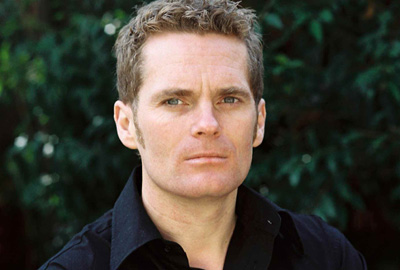 |
Sydney-based writer James Bradley was recently awarded the Pacall Prize as Australia's best critic. He publishes his reviews and critical essays in newspapers such as "The Age", "The Sydney Morning Herald" and "The Australian" as well as a number of Australian literary magazines. He also blogs at "City of Tongues" where he occasionally reprints his critical works. I've always liked James's reviews: he isn't genre-centric and is quite willing to review science fiction on television as well as literary novels. Added to that you always come away from one of his reviews knowing full well if the work under discussion is worth your time. A rare ability these days it seems. Stephen Romei interviewed James, after his win, for "The Australian": |
Q: James, congratulations on winning the Pascall. What does this award mean to you?
A: It's incredibly exciting and very flattering. But it's also slightly humbling, because I tend to think of myself as a jobbing writer rather than something as exalted as a critic.
Q: As the judges say, you are a practicioner-critic, someone who experiences both sides of the fence. How does this inform your approach to reviewing? And, more broadly, what are your principles for reviewing, what do you set out to achieve, in the review itself and in the wider cultural/literary discussion?
A: I think people tend to assume reviewing and writing are somehow at odds with each other, but I've never really felt they are. But I think novelists probably do approach books slightly differently to other readers, since it's difficult for us not to be aware of how mysterious the process of creation actually is, or to turn off that bit of the brain that is looking at the nuts and bolts and wiring and wondering how they pulled that off. Likewise as a writer I suspect you're a bit more aware of the way something sits in a living tradition: if somebody's writing about something the chances are it's responding to things you've thought about as well, or even written about, so there's a real thrill (and sometimes a little bit of envy) when you see someone really knock something out of the park. Whether any of that shows up on the page I don't know, but I think it's there nonetheless.
As for principles, someone once said that the only bad writing is dishonest writing, and I tend to agree. The best thing you can do is write from the heart and talk about how you felt and what you think. Part of that is about being honest about what you thought, but it's also about acknowledging your own prejudices and being prepared to acknowledge critical judgements are always provisional. I know a lot of the writing I'm proudest of is writing where I'm trying out ideas, or exploring something I'm not quite sure about. Partly that's because the best writing is always actively engaged with thinking something through, but it's also because it helps break down the barrier between the reader and the writer, and to make them part of the process. One of the reasons I hate pontificating in print is because critical writing should always be part of a conversation, and nothing kills a conversation quicker than some windy know-all.
Basically though, I write about books and film and television because I love them and find them endlessly pleasurable and exciting, and I want to find a way of sharing that passion. In my experience most critics are basically enthusiasts, and I'm no different.
